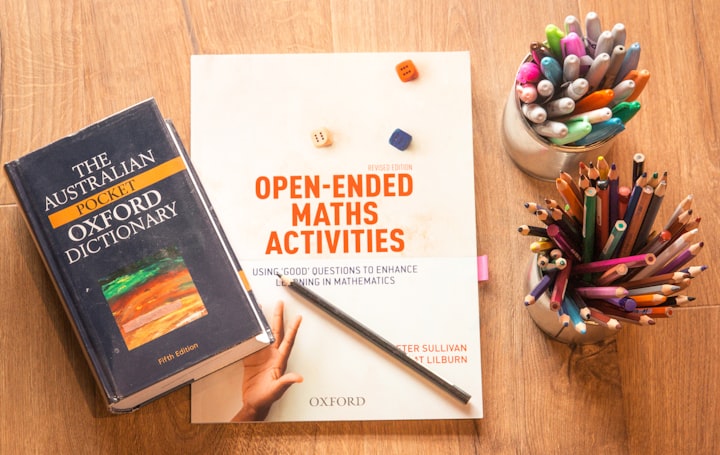Why Is British English Different Than American?
Why Is British English Different Than American?

The country with the most native English speakers is the United States with 23.1 million people. People who learn English as a foreign language first learn the American (US) version of English, which makes it much more widely used than its British counterpart, British English which is the second most spoken variant with 60 million speakers.
Given the number of places in the world where English is spoken, there will inevitably be differences. The rest of the population uses their own regional dialects, of which there is a great diversity.
Not surprisingly, there are over 160 different dialects of English, each of which has a different spelling to describe one or the other. The written forms of British and American English found in newspapers and textbooks differ little in their essential characteristics, with only occasional noticeable differences. In the last 400 years however, the languages used in America (the United States) and here in the United Kingdom have slightly varied, resulting in the two English dialects most commonly referred to as "british" and "American" English.
In the early 19th century Webster saw the additional letters in English words and decided that they were superfluous for his first published dictionary. The spelling of these words was consolidated by Samuel Johnson, who is considered one of the world’s most famous dictionaries.
This means that the word "color favorite" in American English in other parts of the world such as Britain, Canada, Australia and New Zealand is spelled as "color favorite" because it moved from its original French roots to American English and had no revised spellings in early American history. Other spelling differences include Americans' propensity to terminate words in "British.". The "he" at the end of words like "theatre" and "centre" is turned into "theatre centre" in British English.
In some cases, the American English does not include the double consonants at the end of the words, in this case the letter is l ; this can be seen in words such as "fuel". The letter "ing" is added to the words in British English to add an "L" at the end, so that a word like fuel is fuel instead of fuel, whereas in American English there is no fuel or fuel. Some British spellings require a double consonant, for example in the past participle of some verbs, while American spellings omit it.
For example, in British English, a series of words are used at the end to organize or list. In British English, ense is also used as a verb, for example, you have a license to own a license.
Many vocal sounds differ, but the most common difference people notice is in the letters of the words. On both sides of the Atlantic, British English is known for the quiet endings of many words. The sounds for ae and e are combined into one letter.
When it comes to the differences between British and American English, the British often fall behind. The famous contrast between the way American English is spoken and the English largely spoken in Britain includes the so-called Rhotic R. The Rhotic R sounds of words are much harder than what we now hear in England in the United States. In American English, spelling is based on how a word sounds when it is spoken.
It is impossible to have in America a different kind of English than is given in England or Great Britain because American English is exposed to other external factors such as other existing languages and a new environment. It must not be forgotten that America was colonised by the British and Americans do not speak British English, but vote in their own way and speak and speak English.
A lexicographer named Noah Webster deleted the letter U from the word colour and honour, which had developed under French influence in England, and made it colour and honour. He wanted the American spelling to be not only simpler and different from the British spelling, but also a way for America to show its independence from the former British rule. He did the same with the word end and did it for as long as he thought the American English spelling reflected the way it should be said.
It is believed that the creator of the American Dictionary Noah Webster made a few subtle changes to the spellings in the American dictionary version to distinguish the two different cultures and to interweave them in some way.
Despite their differences, British English and American English represent the majority of culture in an expanding world that has produced a lot of dialectic in the English language. The most notable difference between the two is the British accent and the pronunciation of words and letters.
This is a very old word that found its way to English in the 15th century and is frequently used as a verb (candy or orange for example ). The word Oe or ae sounds like this in British English, but the American English equivalent uses an e stem (see American English spelling of British English) and it is more common to use the letter t in the stem (for example, burn or burn ). British-English numbers have a value of one hundred, and the word is inserted after the last two digits.
Changing accents can be difficult to define, given that we do not listen to the sounds of a language that has been spoken for several hundred years. The English language is not phonetic and therefore difficult to spell, but it has some irregularities in the sound of words, which are certainly oriented to the way they are written. Another clue is the way words are spelled and used in rhymes.
William A. Kretzschmar Jr. even goes so far as to argue that the word stock of the individual colonies was partially divided and preserved, but he does not mention that the colonies were founded before Elizabethan English and that they became better with the development of the English language and were not lost (258).





Comments
There are no comments for this story
Be the first to respond and start the conversation.